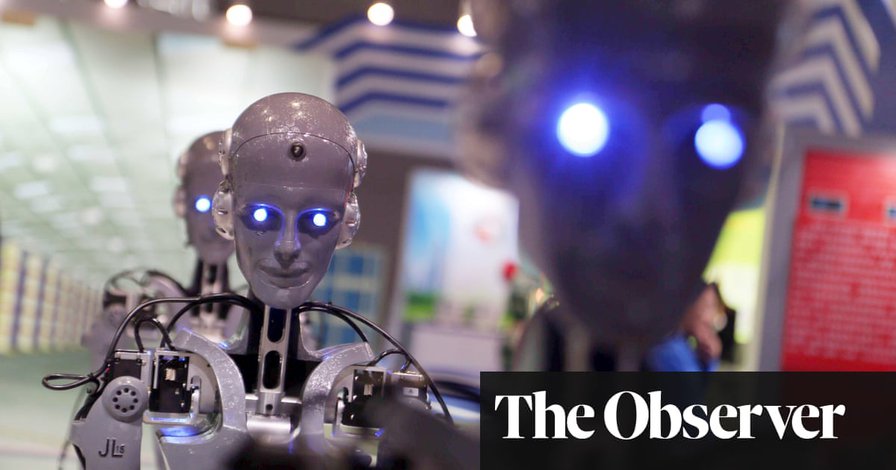
my notes ( ? )
a new 300-page report ... looks at the likely effects of a robot revolution... huge numbers of jobs being wiped out: up to 35% of all workers in the UK and 47% of those in the US, including white-collar jobs...
The longer you look, the more you find computers displacing simple work... while some jobs are replaced, new ones spring up that focus more on services and interaction with and between people...
a rarification of leading-edge employment, where fewer and fewer people have the necessary skills to work in the frontline of its advances. “In the 1980s, 8.2% of the US workforce were employed in new technologies introduced in that decade... 1990s, 4.2%. 2000s ... just 0.5%... potential for automation is expanding – but also that technology doesn’t create that many new jobs now compared to the past...
There will be people who own the AI, and therefore own everything else... homo sapiens will be split into a handful of ‘gods’, and then the rest of us... low-skilled factory workers displaced by robots are rarely the same people who land up as app developers or analysts..
the rise of the machines may generate huge economic benefits; but unless it is carefully managed, those gains may be captured by shareholders and highly educated knowledge workers, exacerbating inequality
- Artificial intelligence: ‘Homo sapiens will be split into a handful of gods and the rest of us’ | Business | The Guardian
Read the Full Post
The above notes were curated from the full post
www.theguardian.com/business/2015/nov/07/artificial-intelligence-homo-sapiens-split-handful-gods.
